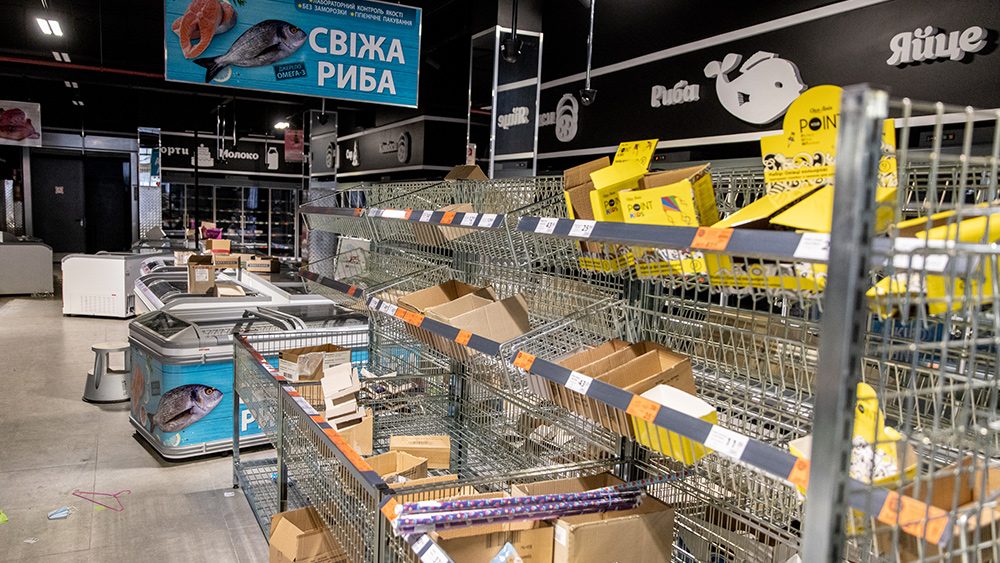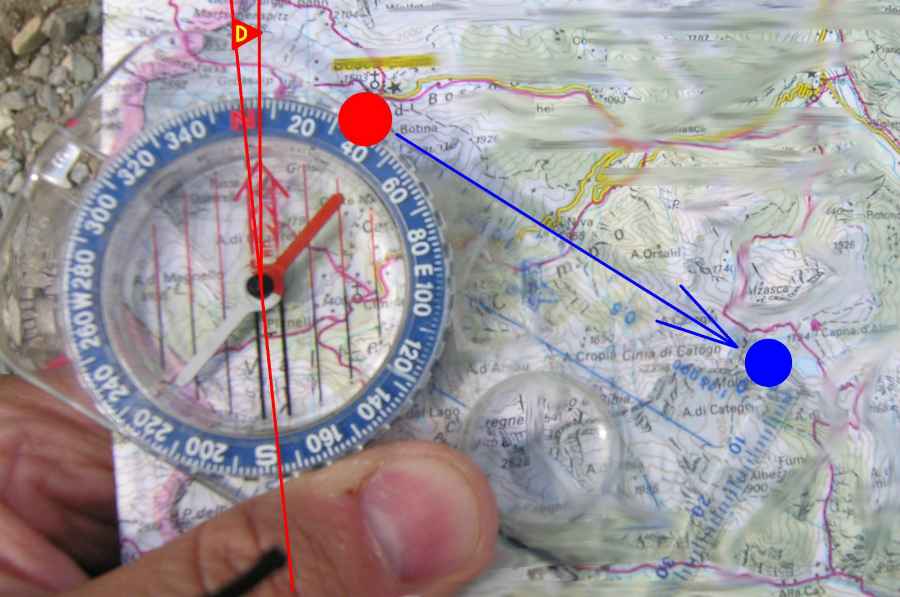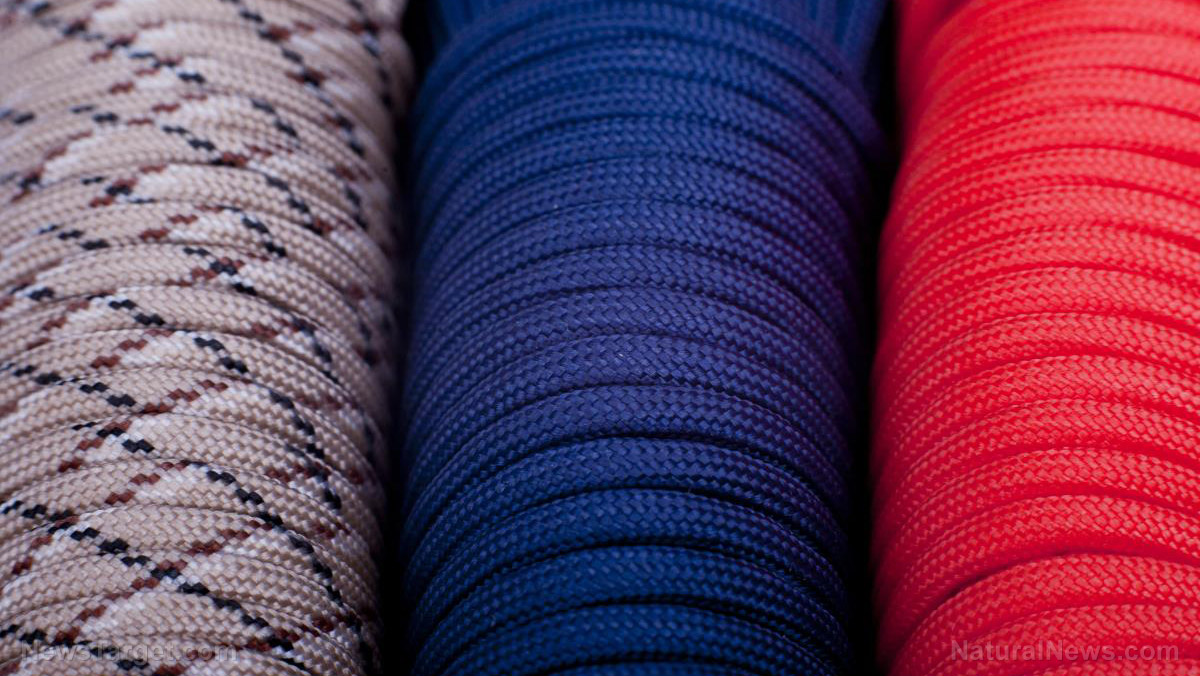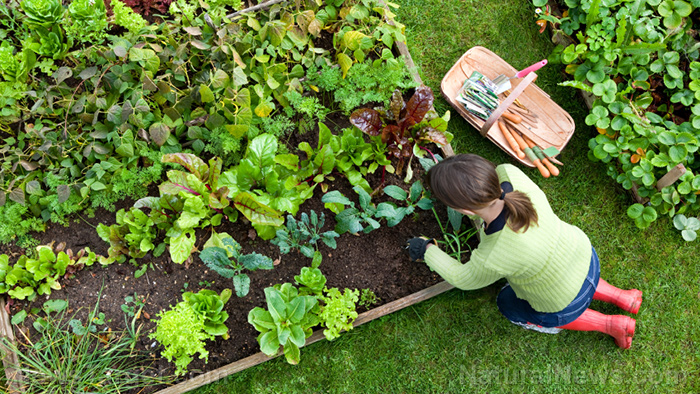Essential prepping skills: 12 Hobbies that can help you survive after SHTF
04/12/2022 / By Zoey Sky

As a prepper you need to be a well-rounded individual. After all, it’s not enough to just have a stockpile of food and survival supplies on your homestead.
Before SHTF, learning various prepping skills or hobbies like home gardening or hunting can help you survive.
In an episode of “The Late Prepper with JD Rucker,” the host discussed 12 hobbies or skills that will give you an advantage when disaster strikes.
These skills cover three sub-groups: food prep, outdoor activities and self-defense.
Food prep
Food prep is important, especially if you want to make sure you have a steady food source after SHTF, especially when dealing with a long-term scenario.
If you start now, you can soon build a stockpile that will provide you with enough food for several weeks or even months.
Gardening
Home gardening is an important prepping hobby or skill. Once you get the hang of it, you can soon grow crops that will thrive in your location.
With a big plot of land, you might even grow enough food to feed your whole family.
Here are some fruits and vegetables that you can grow in your home garden before SHTF:
Fruits:
Vegetables:
- Broad beans
- Collard greens
- Green beans
- Kale
- Peas
- Potatoes
- Squash (Acorn and butternut squash)
- Sweet potatoes
- Swiss chard
Canning
While gardening, you will sometimes have too much food for your table and stockpile. Learn about home canning so you can make your harvest last longer.
You can also earn extra money by selling home-canned fruits and vegetables from your home garden. (Related: Survival skills: Side jobs that will help you earn money after SHTF.)
Sprouting and growing microgreens
Sprouts and microgreens may be tiny, but their nutrient profiles are comparable to other vegetables and leafy greens. And unlike a home garden, you don’t need a lot of space to start sprouting and growing microgreens.
Before you get started, look up which vegetables you can use to make sprouts or microgreens. Once you’ve decided, take beans or spreadable seeds, wash them and put them in water.
Check on your sprouts regularly and rinse with clean water. After several rinses, your sprouts or microgreens should be ready to eat.
Dehydrating and freeze-drying
Aside from home canning, you can preserve excess fruits and vegetables from your harvest by dehydrating or freeze-drying.
If you have funds for appliances, invest in a freeze dryer or dehydrator. Alternatively, you can dehydrate food using other methods like sun drying.
If you’re handy with tools, you can try building a DIY dehydrator.
Beekeeping
Beekeeping is a rather time-consuming hobby with a steep learning curve, but it’s worth learning if you use a lot of honey.
Like gardening, you can also earn extra cash by selling honey or other products made from beeswax like candles, creams, lotion bars, pomade or soaps.
Outdoor activities
This section includes outdoor activities that are also beneficial in a survival scenario.
Camping
When things are quiet, take your family camping so everyone can get used to roughing it before SHTF. Teach them how to start a fire without any tools or teach your family how to forage for food.
Hunting
Hunting is another important skill for preppers.
Even if you have a lot of food in your stockpile after weeks or months your supplies will eventually run out. If you know how to hunt, you can get more food and meat for your family.
Fishing and trapping
If you live near a body of water, learn the basics of fishing.
You can also learn how to set traps for small animals like hares, rabbits or squirrels.
Survival skills practice
Once you’ve learned a skill or two, practice them while you’re camping over the weekend. Practicing regularly helps sharpen your skills so that when SHTF, you can easily start a fire even when the weather is bad or if you don’t have a lighter in your bag.
You should also practice how to hunt, fish and set traps.
Self-defense
When society collapses, you may need to protect yourself from attackers who want to steal your supplies.
And if you plan on bugging out after SHTF, knowing self-defense means you can also defend yourself against wild animals that might sniff out your food supplies.
Firearms
Learning how to use a firearm is good for both self-defense and hunting. Once you decide on a weapon, take the time to train with it to avoid any accidents if you need to defend yourself.
Practice firing and reloading your firearm.
Archery
If you prefer something long-range and old-school, archery is a good choice for hunters. Like firearms, a bow and arrow also work best if you get lots of practice before things go south.
Martial arts
If you prefer hand-to-hand combat, try learning martial arts. Alternatively, you can learn how to use firearms and a martial art to cover all your bases.
Instead of wasting time watching TV shows, invest in useful skills and hobbies like gardening, hunting or martial arts so you can survive if and when SHTF.
Visit Survival.news for more tips on how to survive after disaster strikes.
Watch the full video below of “The Late Prepper with JD Rucker” to learn more about 12 useful hobbies that will benefit all preppers.
This video is from the JD Rucker channel on Brighteon.com.
More related stories:
Survival skills: Learn how to cook from scratch so you can feed your family when SHTF.
Essential survival skills: How to purify water when SHTF.
10 Must-have camping tools that can teach your kids survival skills.
Advanced prepper tips to take your prepping to the next level.
Food supply 101: Unusual sources of food when SHTF.
Sources include:
Submit a correction >>
Tagged Under:
bug out, food independence, Food storage, food supply, green living, homesteading, JD Rucker, off grid, practical skills, preparedness, prepping, prepping skills, self-defense, SHTF, survival, survival gear, survival skills, survivalist, The Late Prepper with JD Rucker, tips
This article may contain statements that reflect the opinion of the author
Get independent news alerts on natural cures, food lab tests, cannabis medicine, science, robotics, drones, privacy and more from NewsTarget.com
Get independent news alerts on natural cures, food lab tests, cannabis medicine, science, robotics, drones, privacy and more from NewsTarget.com
RECENT NEWS & ARTICLES
SHTF.News is a fact-based public education website published by SHTF News Features, LLC.
All content copyright © 2018 by SHTF News Features, LLC.
Contact Us with Tips or Corrections
All trademarks, registered trademarks and servicemarks mentioned on this site are the property of their respective owners.





















